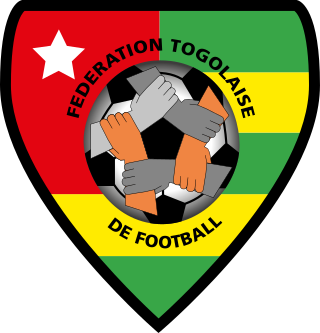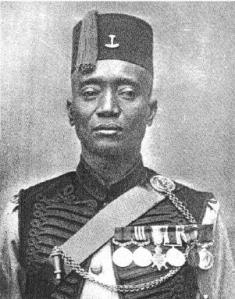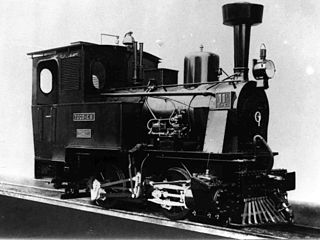
Togo, officially the Togolese Republic, is a country in West Africa. It is bordered by Ghana to the west, Benin to the east and Burkina Faso to the north. It extends south to the Gulf of Guinea, where its capital, Lomé, is located. It covers about 57,000 square kilometres with a population of approximately 8 million, and has a width of less than 115 km (71 mi) between Ghana and its eastern neighbor Benin.
The history of Togo can be traced to archaeological finds which indicate that ancient local tribes were able to produce pottery and process tin. During the period from the 11th century to the 16th century, the Ewé, the Mina, the Gun, and various other tribes entered the region. Most of them settled in coastal areas. The Portuguese arrived in the late 15th century, followed by other European powers. Until the 19th century, the coastal region was a major slave trade centre, earning Togo and the surrounding region the name "The Slave Coast".

The First Battle of the Marne was a battle of the First World War fought from 5 to 12 September 1914. It was fought in a collection of skirmishes around the Marne River Valley. It resulted in an Entente victory against the German armies in the west. The battle was the culmination of the Retreat from Mons and pursuit of the Franco-British armies which followed the Battle of the Frontiers in August and reached the eastern outskirts of Paris.

Togoland was a German Empire protectorate in West Africa from 1884 to 1914, encompassing what is now the nation of Togo and most of what is now the Volta Region of Ghana, approximately 90,400 km2 in size. During the period known as the "Scramble for Africa", the colony was established in 1884 and was gradually extended inland.

Kpalimé is a city in the Plateaux Region of Togo, 120 km north of Lomé and 15 km from the border with Ghana. It is the administrative capital of Kloto Prefecture. Kpalimé has a population of 75,084, making it the fourth-biggest town in Togo, after Lomé, Sokodé and Kara. The town has a cathedral, a scientific lycée, and a post-office, as well as several banks, medical centres, pharmacies, cyber-cafés and petrol stations.

Aného, previously known as Anecho is a town in southeastern Togo, lying on the Gulf of Guinea near the border of Benin. Founded in the late 17th century by Ane people fleeing from Denkyira attacks in Elmina, Aného developed as a slave port and commercial center. It was the capital of German Togoland from 1885 to 1887 and of the French occupation from 1914 to 1920. Aného remains an important intellectual center for Togo, though it has not grown as rapidly as Togo’s other major cities. Its estimated population in 2005 was 25,400.

The Togolese Football Federation or FTF is the governing body of football in Togo. In 2006, the Togo national football team participated for first time in the 2006 World Cup in Germany.

French Togoland was a French colonial League of Nations mandate from 1916 to 1960 in French West Africa. In 1960 it became the independent Togolese Republic, and the present day nation of Togo.

The African Theatre of the First World War comprises campaigns in North Africa instigated by the German and Ottoman empires, local rebellions against European colonial rule and Allied campaigns against the German colonies of Kamerun, Togoland, German South West Africa and German East Africa. The campaigns were fought by German Schutztruppe, local resistance movements and forces of the British Empire, France, Italy, Belgium and Portugal.
The Party for Democracy and Renewal is a political party in Togo. It was founded on May 1, 1991, and its National President is Zarifou Ayéva.

The North Shore Regiment is a Primary Reserve infantry regiment of the Canadian Army, and is part of the 5th Canadian Division's 37 Canadian Brigade Group. The regiment is headquartered in Bathurst, New Brunswick, with sub-units located in Newcastle, Campbellton and Moncton.

Alhaji Grunshi,, serving in the Gold Coast Regiment, was the first soldier in British service to fire a shot in the First World War.

This is a survey of the postage stamps and postal history of Togo.

The Togoland Campaign was a French and British invasion of the German colony of Togoland in West Africa, which began the West African Campaign of the First World War. German colonial forces withdrew from the capital Lomé and the coastal province to fight delaying actions on the route north to Kamina, where the Kamina Funkstation linked the government in Berlin to Togoland, the Atlantic and South America.

The Affair of Agbeluvoe (Agbéluvhoé, Beleaguer or the Battle of Tsewie, was fought during the First World War between invading British Empire soldiers of the West African Rifles and German Polizeitruppen in German Togoland on 15 August 1914. British troops occupying the Togolese capital of Lomé on the coast, had advanced towards a wireless station at Kamina, 100 mi inland on hills near Atakpamé. The only routes inland were by the railway and road, which had been built through dense and almost impassable jungle.

The Affair of Khra [Chra] was fought by British and French troops against German Polizeitruppen in the village of Khra, near the Khra River on 22 August 1914, during the Togoland Campaign of the First World War. The German defenders mined the approaches to the river, blew the bridges and dug in around the village on the far bank, ready to defend the crossing with rifles and three concealed machine-guns. The British-French attack was repulsed and then a German counter-attack was ordered but many troops refused the order and the attack was not delivered.

The Kamerun campaign took place in the German colony of Kamerun in the African theatre of the First World War when the British, French and Belgians invaded the German colony from August 1914 to March 1916. Most of the campaign took place in Kamerun but skirmishes also broke out in British Nigeria. By the Spring of 1916, following Allied victories, the majority of German troops and the civil administration fled to the neighbouring neutral colony of Spanish Guinea. The campaign ended in a defeat for Germany and the partition of its former colony between France and Britain.

Rail transport in Togo began in 1905.

The following events occurred in August 1914:















